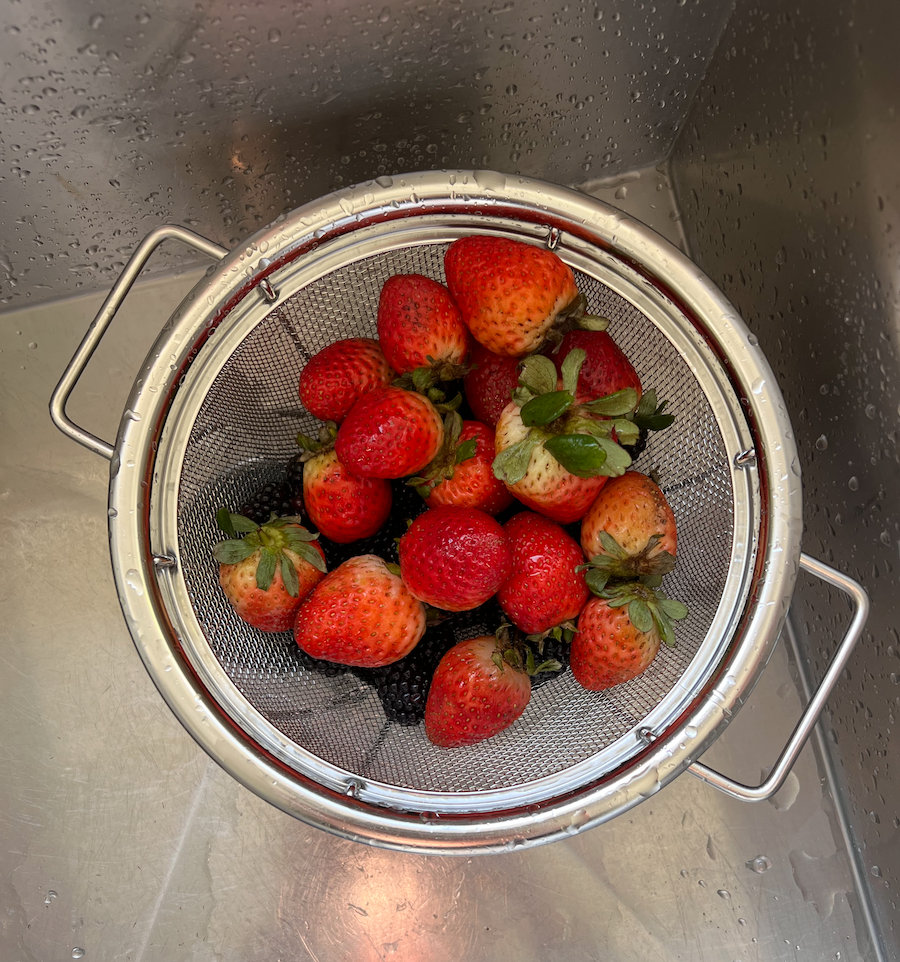It’s been a looooong time since I have posted about the dirty dozen, and it has been updated since I last posted. So, I figured I would post this again. If you have been reading my posts for a while and check out my recipes, you probably have already learned that I really try to always buy organic. However, there are certain things that I actually don’t buy organic because you don’t need to. I judge this based on what is published by the Environmental Working Group as being the dirty dozen and clean fifteen. The fruits and vegetables that contain high levels of pesticides are considered the dirty dozen fruits and vegetables that need to be organic. Then, there are a handful of fruits and vegetables that don’t contain such high levels, which don’t need to be organic. Those ones, I sometimes don’t buy organic, or at least, I don’t worry about it in the same way.
Also, in some cases, certain fruits and vegetables are grown with organic processes but are not certified organic. The organic certification process is pretty expensive, so some smaller farms don’t have the certification, but they use all organic practices. If you go to a farmer’s market and that’s the case, try to find out how they actually grow their produce to determine if it is trustworthy and really is organic.
The following are the current dirty dozen:
- Strawberries
- Spinach
- Kale, Collard & Mustard Greens
- Nectarines
- Apples
- Grapes
- Bell & Hot Peppers
- Cherries
- Peaches
- Pears
- Celery
- Tomatoes
There are definitely a few other problematic foods that contain a bunch of pesticides, and these are potatoes, lettuce, cucumbers, eggplant, broccoli, raisins, hummus, and chickpeas. Usually, a lot of berries show up on this list, as well, so those are another fruit group that I try to always buy organic to be safe.
If I am being honest, I generally try to buy everything organic. This is because anything that has the USDA organic seal slapped on it cannot be genetically modified and must be grown in soil that is free from prohibited substances, including synthetic fertilizers and pesticides. This means it is of higher quality. Also, various studies have shown that organic produce has significantly more antioxidant polyphenols than non-organic produce, and these antioxidants can help reduce risks of inflammation and chronic diseases, such as cancer. Now, who doesn’t want that? However, there are actually certain fruits and vegetables that are considered cleaner and do not really need to be organic—as they contain very few or no pesticides at all. In those instances, organic is not really necessary. Like with the dirty dozen, the Environmental Working Group publishes the clean fifteen, which lists certain fruits and vegetables that contain very little to no pesticides when grown.

The following are the current clean fifteen:
- Avocado
- Sweet Corn (but most of the corn out there is genetically modified, so this one should probably still be organic)
- Pineapple
- Onions
- Papaya
- Sweet Peas (frozen)
- Asparagus
- Honeydew Melon
- Kiwi
- Cabbage
- Mushrooms
- Cantaloupe
- Mangoes
- Watermelon
- Sweet Potatoes
Here’s to being well preserved,
Taylor




